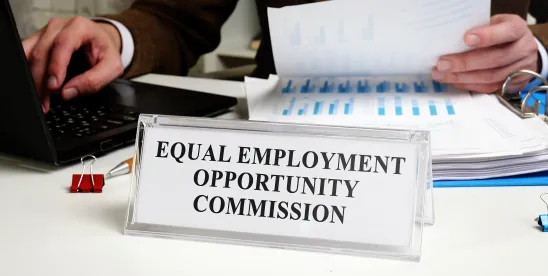As we reported last month, the U.S. Equal Employment Opportunity Commission’s (EEOC) extended deadline to file a 2023 EEO-1 Component 1 report (for covered entities) was July 9, 2024. That date now behind us, what’s a company to do when it realizes it was required to file an EEO-1 report, but failed to do so by that deadline?
Perhaps surprisingly, not much.
As a refresher, not all employers are mandated to complete the EEO-1 report. The EEO-1 report requires private employers with 100 or more employees (measured as a threshold reached at any time during Q4 of the reporting year), as well as employers with at least 50 employees who have contracts with the federal government exceeding $50,000 in value, to submit data on the racial/ethnic and gender composition of their workforce. (Note that integrated employers or those closely affiliated with other employers, whose combined headcounts are 100 or more employees, are also required to file.) Employers can determine whether they align to the EEOC’s reporting requirements using the EEOC’s Online Filing System (OFS) eligibility to file screen.
So, the lingering question for covered employers who failed to file in time is: what do we do? Quite simply, late reports will not be accepted. The EEOC deems employers who failed to submit required EEO-1 reports on time as “out of compliance” and does not permit submission of any such late reports after-the-fact or during the subsequent reporting cycle. Rather, those employers should simply wait until the next reporting cycle to submit a current EEO-1. That said, the EEOC may affirmatively issue a non-compliant employer with a notice of non-compliance and, at that time, provide the opportunity to file the late reports.
If you are an “out of compliance” employer that receives such a notice, you should immediately consult with counsel to determine the best way to efficiently remedy the situation, as the EEOC has the authority to seek enforcement by court action — a needlessly expensive (and publicly available) process.
Ok, so you missed the deadline, you can’t file late (absent specific notice from the EEOC), and you’re technically “out of compliance.” What kind of liabilities will you face?
Nothing too drastic — at least, not immediately. There are no financial penalties for a failure to file, though, as noted above, employers may be compelled to file by order of a federal district court. However, if in the interim an employee files a charge of discrimination with the EEOC or initiates other litigation, it is likely that historical EEO-1 reports will be a fair subject of the claim. Frequently, the EEOC and other administrative agencies request employer EEO-1 reports in connection with investigating a charge. If a covered employer has not filed an EEO-1, the EEOC can issue a non-compliance finding, even if the underlying discrimination charge is unsubstantiated; this, in turn, can result in a conciliation process requiring additional compliance reporting and other non-monetary penalties. At the very least, the EEOC will be more suspect of the non-compliant employer than it would have been if said employer were in compliance.
A few other important considerations in connection with EEO-1 filings:
- Do not file false reports — the penalty for making a willfully false statement on an EEO-1 report is a fine, imprisonment of up to five years, or both.
- Do not mail or email an EEO-1 report. The EEOC cautions that it will only accept EEO-1 reports that are submitted and certified through the OFS and will not accept reports submitted via paper or non-OFS electronic means.
- If you cannot meet the EEO-1 report filing deadline, consider whether you can apply for an undue hardship exemption or submit a written proposal to change the filing date before the required filing date.
As we have previously advised, it is essential for employers to recognize the importance of EEO-1 reporting and prioritize compliance with federal regulations. To prevent future non-compliance, employers should establish a responsible employee or third-party vendor to manage next year’s EEO-1 report and if possible, register in the OFS in advance. The OFS and EEOC website will also share updates on upcoming filing timelines.
Navea Frazier contributed to this article




 />i
/>i

